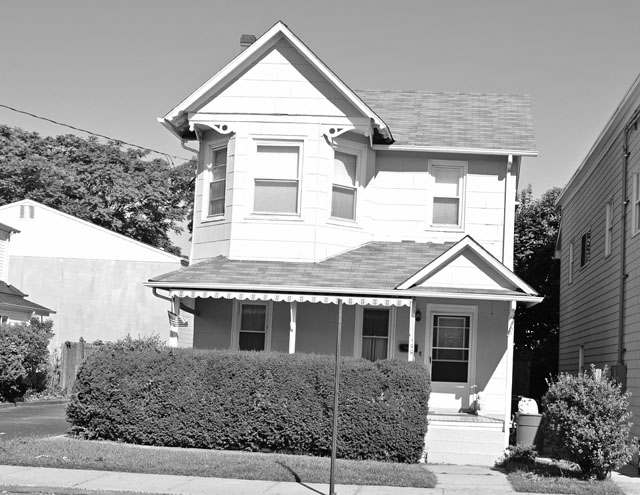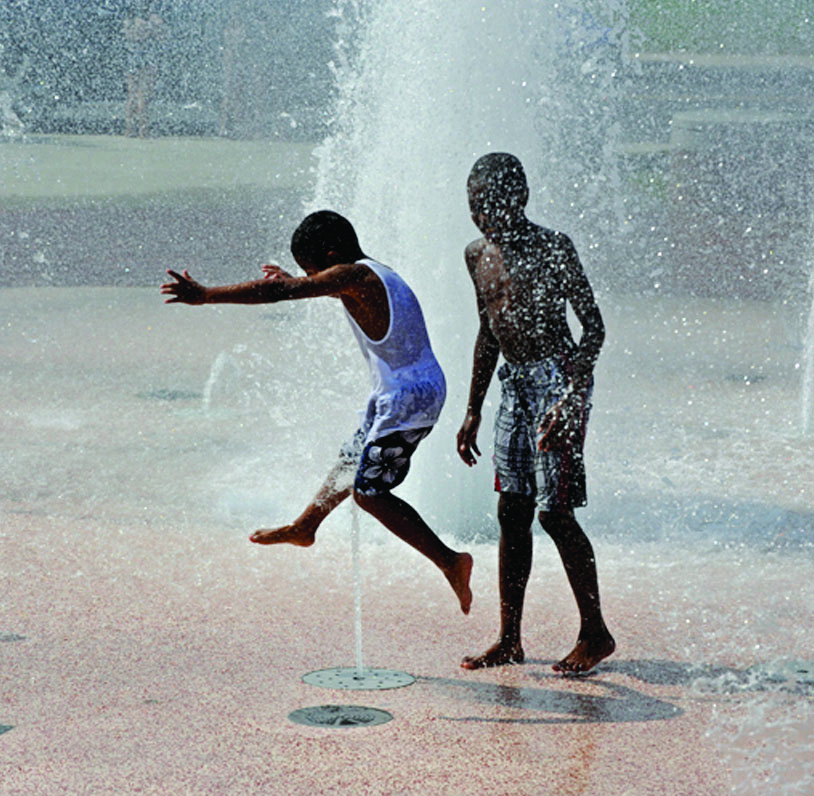
City’s new Assistant Superintendent
July 21, 2011
Shooting leaves three wounded
July 21, 2011 The National Weather Service is expecting local temperatures this week to hit in the upper 90s and possibly even reach 100 degrees by Friday and into the weekend. Along with the heat, there is expected to be high humidity, resulting in a heat index of 110 degrees or higher.
While this could be a boon for local beaches, ice cream shops and other summer businesses, residents are urged to take care in this extreme heat.
This heatwave, which is coming from the mid-western states, has been associated with 13 fatalities there, the NWS reports.
Monmouth County’s Human Services Department has several reminders to help you manage the heat:
- Stay indoors in air conditioning as much as possible;
- If you are out of doors, stay in the shade, trees provide welcome shade;
- If you head to the beach, be sure to bring an umbrella;
- Wear sunscreen and lightweight, light-colored clothing to reflect away some ofthe sun’s energy;
- Drink plenty of water even if you do not feel thirsty. Limit alcohol, and sugary drinks which speed dehydration;
- Slow down. Avoid exertion during the hottest part of the day. If you must do strenuous activity, do it during the coolest part of the day – in the morning between 4 and 7 a.m., and
- Eat small meals and eat more often.
“It may be better for some residents to stay inside and in air-conditioned spaces as the outdoor temperatures and humidity rise.” said Freeholder Deputy Director John P. Curley, liaison to the county Health Department. “For others, the phrase ‘cooler at the shore’ has special meaning this week.”
According to the U.S. Center for Disease Control and Prevention, older adults and people with disabilities are more at risk for heat because they do not adjust as well as young people to sudden changes in temperature, possibly due to chronic medial conditions or the effects of prescription medications.
For older adults who are at risk, the CDC encourages people to visit them at least twice a day and check for signs of exhaustion or heat stroke; encourage them to drink lots of fluids (unless the doctor has generally advised otherwise or prescribed water pills, in which case consult the physician); and take them to air-conditioned locations.
“If you live near an elderly person, knock on the door to check on them,” said Freeholder Amy A. Mallet, liaison to the county’s Human Services Department. “People who are seeking relief from the heat can spend a few hours at our county libraries, which are designated cooling stations.”
In addition to exacerbating certain pre-existing health conditions, overexposure to heat can cause heat stroke, sunstroke, heat collapse, cramps, and heat exhaustion due to water depletion or salt depletion. Those at greatest risk for heat-related illness include children less than 4 years of age, people 65 and older, those who are overweight or who are ill or on certain medications.
The county’s Office of Emergency Management also offers additional heat-related tips to those who prefer not to head outside in the warm weather:
- Stay indoors in air-conditioning as much as possible;
- If your home is not air-conditioned, spend at least two hours daily at an air-conditioned mall, library or other public place;
- Take a cool shower or bath;
- Never leave children or pets alone in the car, and
- Be a good neighbor; check on elderly and special needs individuals in your community.
The county’s Health Department cautions residents to be aware that extreme heat conditions can trigger physical ailments such as heat cramps, heat exhaustion and heat stroke. See the sidebar for common questions about heat stroke.
Heat isn’t the only danger out there. For the last few days the NWS has issued air quality alerts for parts of New Jersey. On Wednesday, it said the air in Monmouth County was “orange level” due to the amount of ozone, and urged children and older adults, people with lung problems like asthma and other sensitive groups to limit their outdoor activity.
Sidebar
What heat stroke is and how to treat it
Heat stroke is the most serious heat-related illness and occurs when the body becomes unable to control its temperature. The body’s temperature rises rapidly, the sweating mechanism fails, and the body is unable to cool down. Body temperature may rise to 106° F or higher within 10 to 15 minutes. Heat stroke can cause death or permanent disability if emergency treatment is not provided.
What are the warning signs of a heat stroke?
Warning signs of heat stroke vary but may include the following:
• An extremely high body temperature (above 103°F)
• Red, hot, and dry skin (no sweating)
• Rapid, strong pulse
• Throbbing headache
• Dizziness
• Nausea
• Confusion
• Unconsciousness
If you see any of the warning signs of heat stroke
If you see any of these signs, you may be dealing with a life-threatening emergency. Have someone call for immediate medical assistance while you begin cooling the victim. Do the following:
• Get the victim to a shady area;
• Cool the victim rapidly. For example, immerse the victim in a tub of cool water; place the person in a cool shower; spray the victim with cool water from a garden hose; sponge the person with cool water; or wrap the victim in a cool, wet sheet and fan him or her vigorously;
• Continue cooling efforts until the body temperature drops to 101-102°F;
• If emergency medical personnel are delayed, call the hospital emergency room for instructions;
• Do not give the victim alcohol to drink, and
• Get medical assistance as soon as possible.





